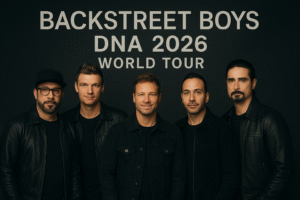
How Anthony Edwards Faces the Pressure of Being the Timberwolves’ Franchise Savior
The spotlight is not unfamiliar to Anthony Edwards. Since being drafted first overall in the 2020 NBA Draft by the Minnesota Timberwolves, the 6’4” shooting guard has carried the burden of transforming a long-suffering franchise into a legitimate contender. As he enters the prime of his career, the expectations placed upon his shoulders have only intensified. No longer the precocious rookie bursting with promise, Edwards is now widely regarded as the face of the Timberwolves—and perhaps their best chance at sustained success in nearly two decades.
With every highlight dunk, clutch performance, and postgame soundbite, the legend of “Ant-Man” grows. But beyond the flair and charisma lies a 22-year-old navigating the immense responsibility of leading a team that has struggled to find relevance in a competitive Western Conference. The weight of these expectations is significant, and how Edwards manages them could determine not just his own legacy, but the future of the Minnesota Timberwolves.
A Franchise Starved for Success
To understand the pressure on Anthony Edwards, one must first understand the context of the franchise he leads.
Since entering the league in 1989, the Minnesota Timberwolves have endured more losing seasons than winning ones. Outside of the Kevin Garnett era—which culminated in a Western Conference Finals appearance in 2004—the Wolves have seldom been in the national spotlight. Despite a handful of playoff appearances, inconsistency, front office missteps, and coaching changes have stifled any real momentum.
Enter Anthony Edwards—a young, confident, and extraordinarily talented player whose swagger and skill have reinvigorated the Timberwolves fan base. Drafted during a chaotic pandemic year, Edwards immediately showed flashes of brilliance in his rookie season. While the team continued to struggle, Edwards’ development was undeniable. By his sophomore year, he was averaging over 21 points per game and asserting himself as a vocal leader both on and off the court.
Now, in his fourth NBA season, Edwards is no longer just a promising talent—he’s expected to deliver results.
The Rise of a Star
Anthony Edwards’ ascent has been meteoric. Known for his electrifying athleticism and explosive scoring, he’s quickly become one of the league’s must-watch players. But what separates Edwards from other high-flying scorers is his evolving all-around game and deep competitive drive.
This season, Edwards has taken noticeable strides in playmaking and defense, two areas critics highlighted early in his career. His ability to facilitate offense and take on tough defensive assignments shows a maturity that belies his age. Coaches and teammates have praised his work ethic and leadership, noting how he embraces responsibility and challenges.
“He wants the pressure,” head coach Chris Finch said in a recent interview. “He wants the big moments. That’s rare. And that’s what makes him special.”
But with stardom comes scrutiny. Every missed shot, every late-game turnover, and every playoff disappointment is magnified. Fans and analysts alike dissect Edwards’ performances, wondering if he can live up to the comparisons to Dwyane Wade, Kobe Bryant, and other legendary shooting guards.
The Expectations of Greatness
Being a franchise player in the NBA is more than just putting up points. It means becoming the team’s emotional leader, its cultural cornerstone, and the focal point of its long-term plans. For Edwards, that means more than just playing well—it means changing the Timberwolves’ identity.
The organization has made it clear that Edwards is central to their future. Last summer, he signed a five-year rookie extension worth up to $260 million, a deal that signifies the franchise’s commitment to building around him. With that contract, however, comes an unspoken demand: deliver results.
For the Timberwolves, “results” means postseason success. The team has reached the playoffs in two of Edwards’ first three seasons, but both appearances ended in early exits. While Edwards performed admirably, particularly in the 2023 playoffs where he averaged over 31 points per game, the team’s inability to advance highlighted the gaps still needing to be addressed.
Now, the expectations are clear. With veterans like Karl-Anthony Towns, Rudy Gobert, and Mike Conley supporting him, the time for excuses is over. Edwards is no longer the young upstart—he’s the leader. And leaders are expected to win.
Balancing Pressure with Joy
One of Edwards’ most endearing traits is his infectious personality. Whether joking with reporters, hyping up teammates, or engaging with fans, he brings a joy to the game that contrasts sharply with the often stoic demeanor of NBA stars. That joy has helped him cope with the pressures of his role—but it hasn’t shielded him entirely.
In interviews, Edwards has acknowledged the stress that comes with being “the guy.” The pressure to perform, to represent a city hungry for success, and to meet personal and external expectations is real. Still, he remains undeterred.
“I love the game. I love the challenge,” he said recently. “Pressure is a privilege. That means they believe in you.”
His ability to maintain that perspective may prove to be his greatest asset. The NBA season is a grind—82 games, countless media obligations, and the mental toll of constant competition. Maintaining joy amid the grind is not just refreshing—it’s necessary.
Leadership in the Making
As Edwards continues to grow into his role, leadership remains a critical area of focus. While he has natural charisma and commands respect with his play, true leadership requires more—accountability, emotional intelligence, and the ability to inspire others to be their best.
Veterans on the team have noted his progress. “He listens. He asks questions. He wants to get better, not just for himself, but for all of us,” said Mike Conley. “That’s what leaders do.”
Edwards has also started mentoring younger teammates, passing on lessons he’s learned and setting a standard for work ethic and commitment. His vocal presence in huddles and the locker room has increased, and he’s taken ownership of the team’s culture.
For a franchise that has often lacked identity, Edwards’ emergence as a leader offers hope. He embodies the grit, confidence, and resilience fans have longed for. But leadership is a journey—and the next chapter will be written in the postseason.
The Road Ahead
The Western Conference is unforgiving. With powerhouse teams like the Denver Nuggets, Phoenix Suns, and Golden State Warriors looming, the path to contention won’t be easy. But the Timberwolves, led by Edwards, are determined to rise.
Much will depend on how Edwards handles the coming years. Can he stay healthy? Can he continue to evolve as a two-way player? Can he elevate his teammates and thrive in high-stakes moments? These questions will define not just the Timberwolves’ trajectory, but also Edwards’ place in the league’s hierarchy.
So far, he’s passed every test. But the ultimate exam—sustained playoff success—still lies ahead.
Conclusion
Anthony Edwards is more than a rising star—he is the beacon of hope for a franchise that has waited too long for a hero. With talent, charisma, and a growing sense of responsibility, he stands at the intersection of promise and pressure. The weight of expectations is heavy, but if anyone can carry it with strength and style, it’s Anthony Edwards.
And if he succeeds, he won’t just change the Timberwolves—he’ll change the narrative of what’s possible in Minnesota basketball.





